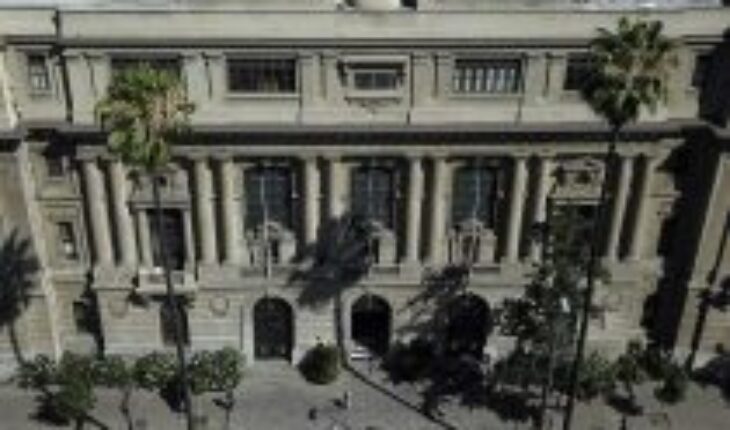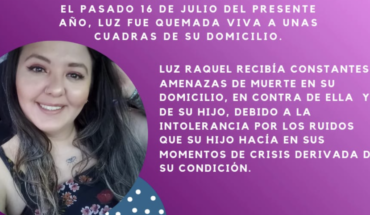During this past weekend, the result of the reform processes to the Charter of Principles and the General Statutes of the Catholic University was finally announced. From the perspective of a student representation committed to a long-term progressive political project and the democratization of the institutional structures of both the country and the university, it would be easy to acknowledge receipt and put the emphasis on those issues that still separate us from the historical demands of the student movement. The process that today accounts for its results is far from conforming to what we proposed at the beginning: student participation was minority, limited and unrepresentative; that of the workers, both administrative and especially subcontracted, was even more so. Regular accountability to the Honorable Superior Council is far from what is expected in terms of community involvement and participation in such an important project. The reform of the Charter of Principles involves less than a third of the previous text, and the Statutes do not exhibit profound fundamental modifications to the internal decision-making structure, nor does it democratize the mechanisms for electing single-person authorities, nor does it resolve the underrepresentation of some levels in collegiate spaces.
Despite this, it is also convenient to take advantage of the instance to decelerate the rhythm and ask about the meaning of these changes in a broader historical framework. The two documents that appear today reformed carry the weight of an indelible stain in their origin. Both were drafted in the middle of the civic-military dictatorship, with a vice admiral of the Navy as Rector appointed by the improper and murderous intervention of the Armed Forces in our house of studies, which in 1967 had begun a deep process of internal reform led by the students. Of course, the new documents imposed by the regime swept away everything built in those years, insulting the memory of hundreds of comrades who worked for a UC at the service of the country. As in the country, this counter-revolution was done with blood and fire: dozens of academics were exonerated, had to flee the country or were brutally murdered for having a political position different from that of the new authorities. Not even being a full professor and director of the School of Architecture saved Leopoldo Benítez from the scaffold. Other careers had to close because they were considered inherently “conflictive”, as is the case of Sociology. Not to mention the study centers -such as CEREN-, the University Cloisters, the tri-state weighted votes to elect local authorities, or the Federation of Students, which spent more than a decade as a spokesperson for the regime and training space for its youth cadres -today in La Moneda, many of them-, while their ideological adversaries were massacred, intimidated and repressed in the streets.
It is a very difficult wound to cauterize, and it is clear that this reform does not. But it would also be unfair to deny that it constitutes a tacit recognition of the need to mend, even if it was in a symbolic sense. Gone are the years when the UC positioned itself as the last stronghold of cultural obscurantism and reactionary spirit, refusing to carry out the slightest internal reflection no matter what happened outside its thick walls. Today, the University is advancing; it does so at a slow pace, sometimes without the best disposition, but it advances. It responds to the signals that society, and its own community, send it. It is no coincidence that the concreteness of these texts coincides with the constituent process currently underway. I believe that the events of this week can best be characterized in the following way: the expression of a symbolic, gradual, somewhat fearful, but authentic opening towards the country and the transformations it is experiencing.
The issue is more transparent when scrutinizing the new General Statutes. To the student representation with voice and vote in the Honorable Superior Council, today the participation of workers and alumni in the maximum decision-making space of the institution is added. Moreover, this incorporation will be done respecting criteria of gender parity in the selection of these representatives, accepting the express request of the Federation of Students in the figure of the President Ignacia Henríquez and the Superior Councilor Almendra Aguilera. This is a historic achievementrich that it is necessary to size, and responds to the historical demands of our estates during the last decades. Generations of students and officials passed through the UC without even venturing the possibility of having the right to vote in the course of their own house of studies, according to an institutional framework that is unfair and antediluvian in its spirit. To despise this advance would also be to despise their struggle and their longings. Nor is it an isolated event: after a decade of progressive student federations and internal political construction, the results are in sight. The existence of a Gender and Sustainability Directorate; the repeal of DFL2 and an end to the legal prohibition of student participation in university governing bodies; the implementation of free admission, ranking and expansion of scholarships and alternative admission mechanisms, with a profound impact on the socioeconomic composition of students; the recognition of the intercultural reality of the country – enshrined in the new Charter of Principles – through the recognition of the former president of the Constitutional Convention Elisa Loncon; advances in care, mental health and openness to sex-generic diversities increasingly present in our community; these are just some of the achievements that would be very difficult to explain without the mobilization of successive generations of students committed to a different UC.
We must have a strong voice, and raise our objections to the new texts. We do not believe that it will solve the problem of underrepresentation or the low participation of the various levels within the institution. We have doubts about the real impact of the amendments to the Charter of Principles, the relevance of limiting the participation of workers only to those in “the area of education” and the division between unionized and non-unionized, which could eventually become a constraint on the development of labor organization within the university. In addition, by the way, to the numerous outstanding accounts already mentioned. But none of that can completely cloud the legitimate satisfaction in observing how our UC is no longer the same as it was fifteen years ago. In the vertigo of student representation and the political and social upheaval of recent years, it is sometimes difficult to put into perspective what has been achieved, and the real effects that the hard work of which it is so often difficult to observe its fruits can have. Our challenge, now, is to live up to the objectives that we ourselves have wanted to promote: to continue taking an active role in the construction of a more just, democratic UC at the service of the country, under the inspiration of Fernando Castillo Velasco, Miguel Ángel Solar, Alicia Ríos and many others. If we recognize progress today, it is not to stop. On the contrary, recognizing these achievements allows us to give meaning to our action and reaffirm that, with work and the will to change, a different university is possible. And today we are a little closer than yesterday.
The content expressed in this opinion column is the sole responsibility of its author, and does not necessarily reflect the editorial line or position of El Mostrador.





